There are a lot of awful places in the world, if what we mean by awful is offensive to Western standards of people with Western standards of living. If you have a US income, even a very average one (and on the whole travelers tend to be better off than non-travelers), then seeing comparative extreme poverty is tough.
Isn’t this awful! It shouldn’t be this way!
And hearing stories about rights abuses is hard, too. Child labor was common in the U.S. and other Western nations until standards of living were higher, automation also replaced the least-skilled labor. Laws play a role here, although they generally lagged the economic reality on the ground.
Lucky thinks the UAE is a far more depressing place than India.
Many countries with “visible” poverty have a huge gap in standards of living, whereby you have the really rich and the really poor, without much of a middle class.
But I don’t think there’s anywhere I’ve been where it’s as apparent and depressing as in the UAE.
We travel internationally in part to see different cultures, and for me, at least, I’m typically left with a positive impression.
This is hard to explain, but when I go to India and see the poverty there, I don’t say “wow, I feel so bad for them,” but rather think “wow, it’s amazing how happy they are, despite lacking so many of the things that we consider important in the US.”
I actually have the exact opposite reaction.
The first time I visited India I visited Mumbai, and hired a guide that himself was a street kid, was taken in by a Jesuit, and when his mentor died he was left a used Toyota van which allowed him to drive tourists.
We certainly saw the standard sights of Mumbai, like Ghandi’s home and the Taj Palace hotel.
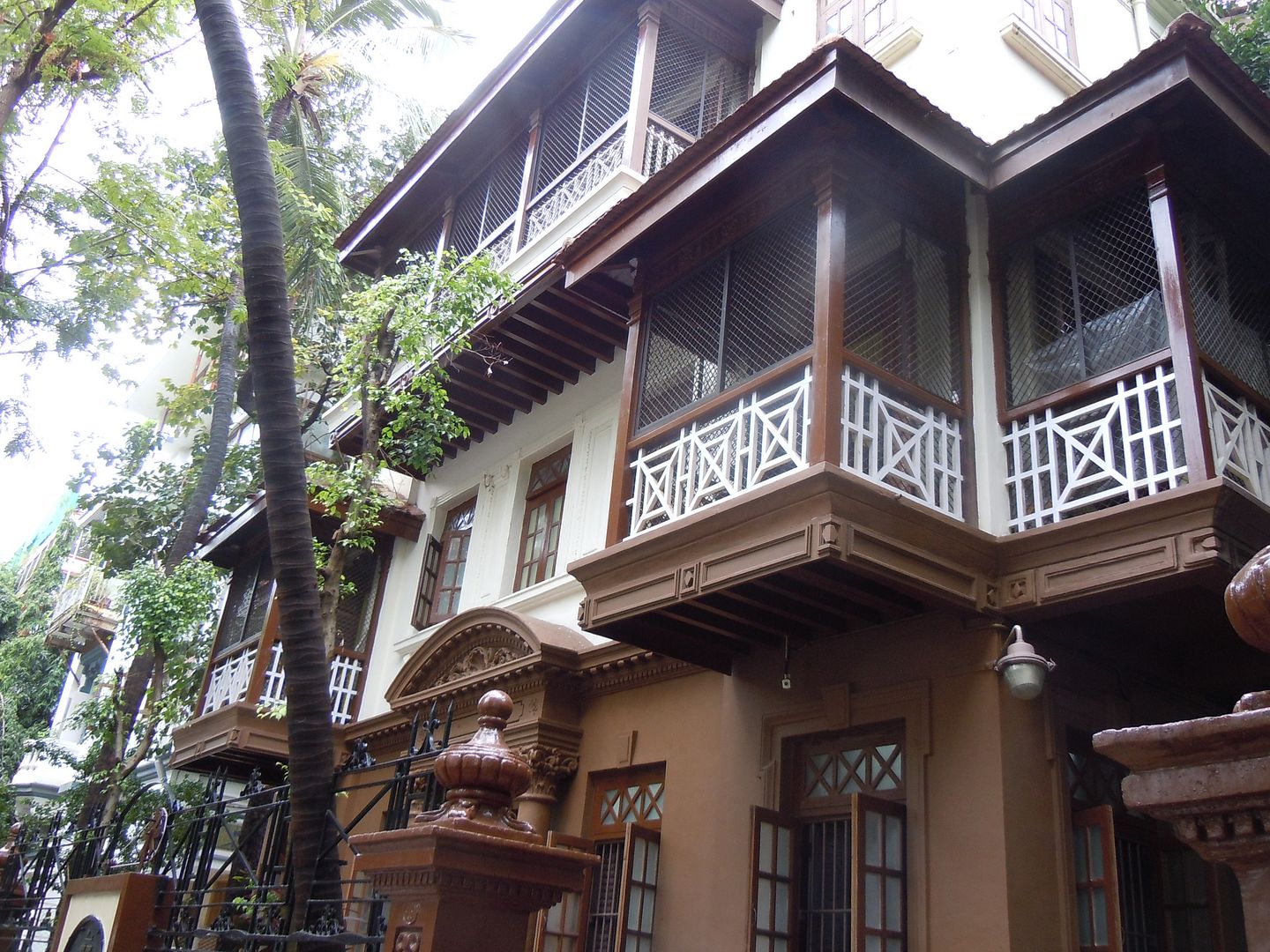
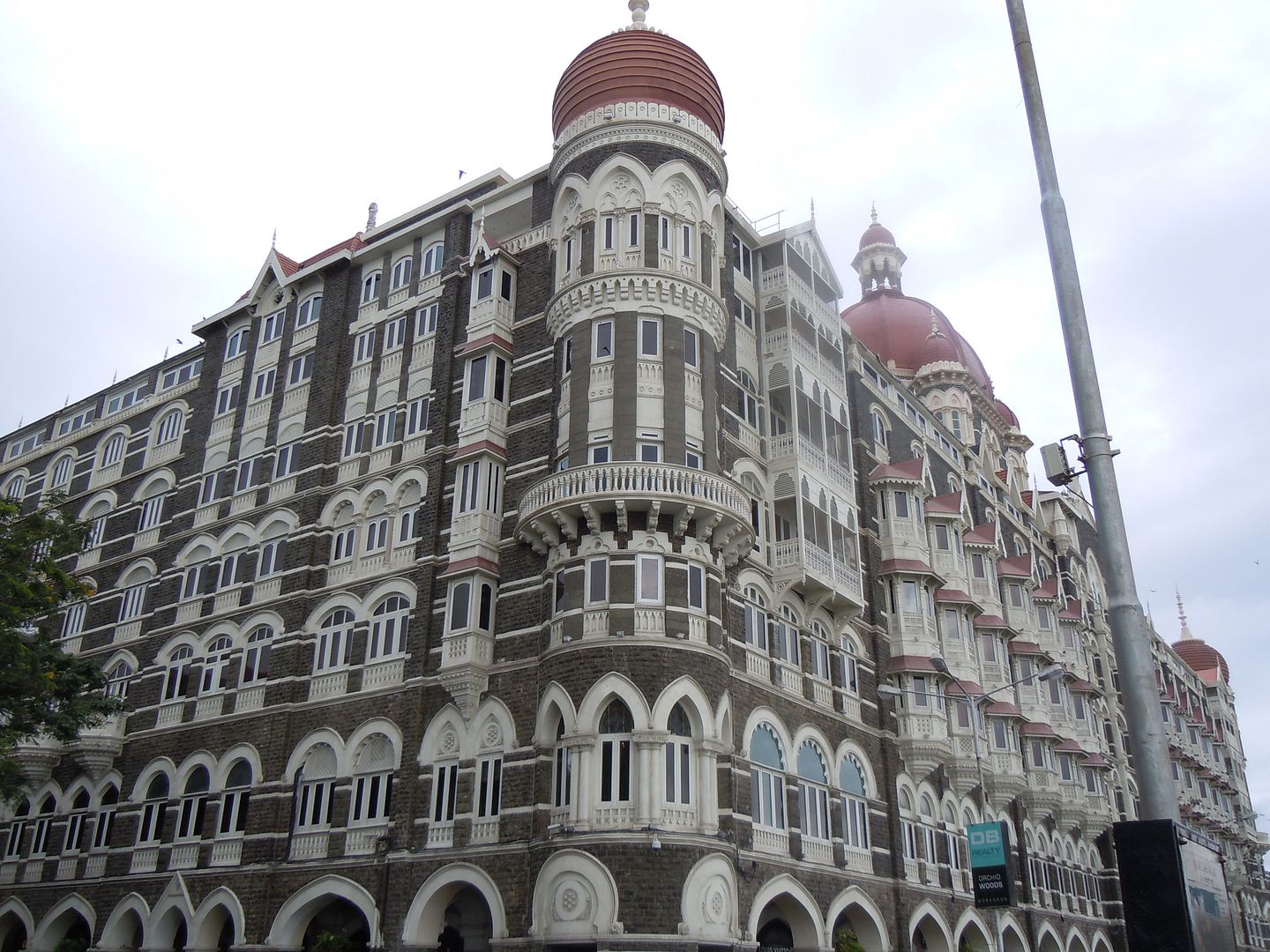
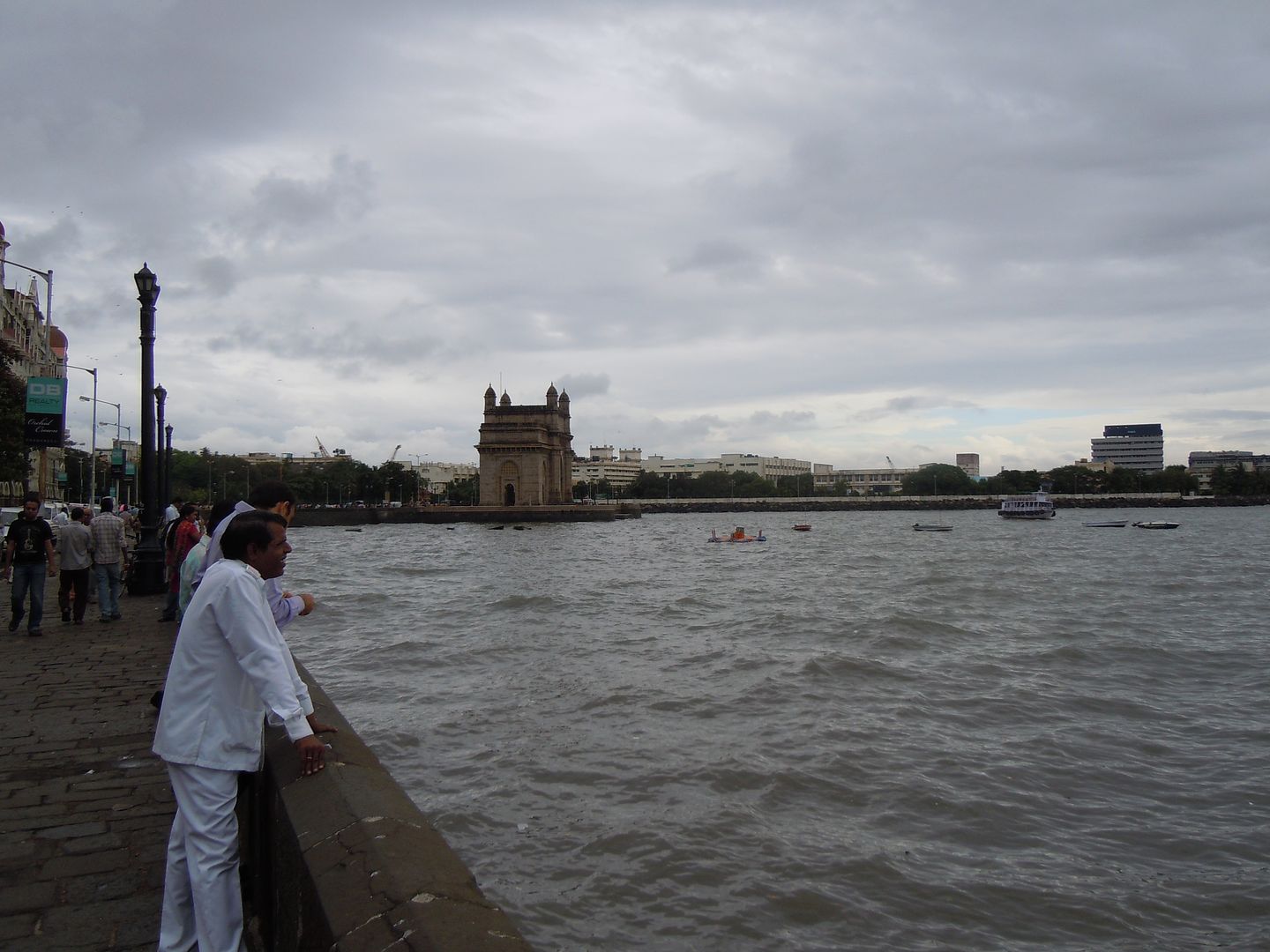
He guided us as to which street food a Western stomach could eat, and what to avoid.
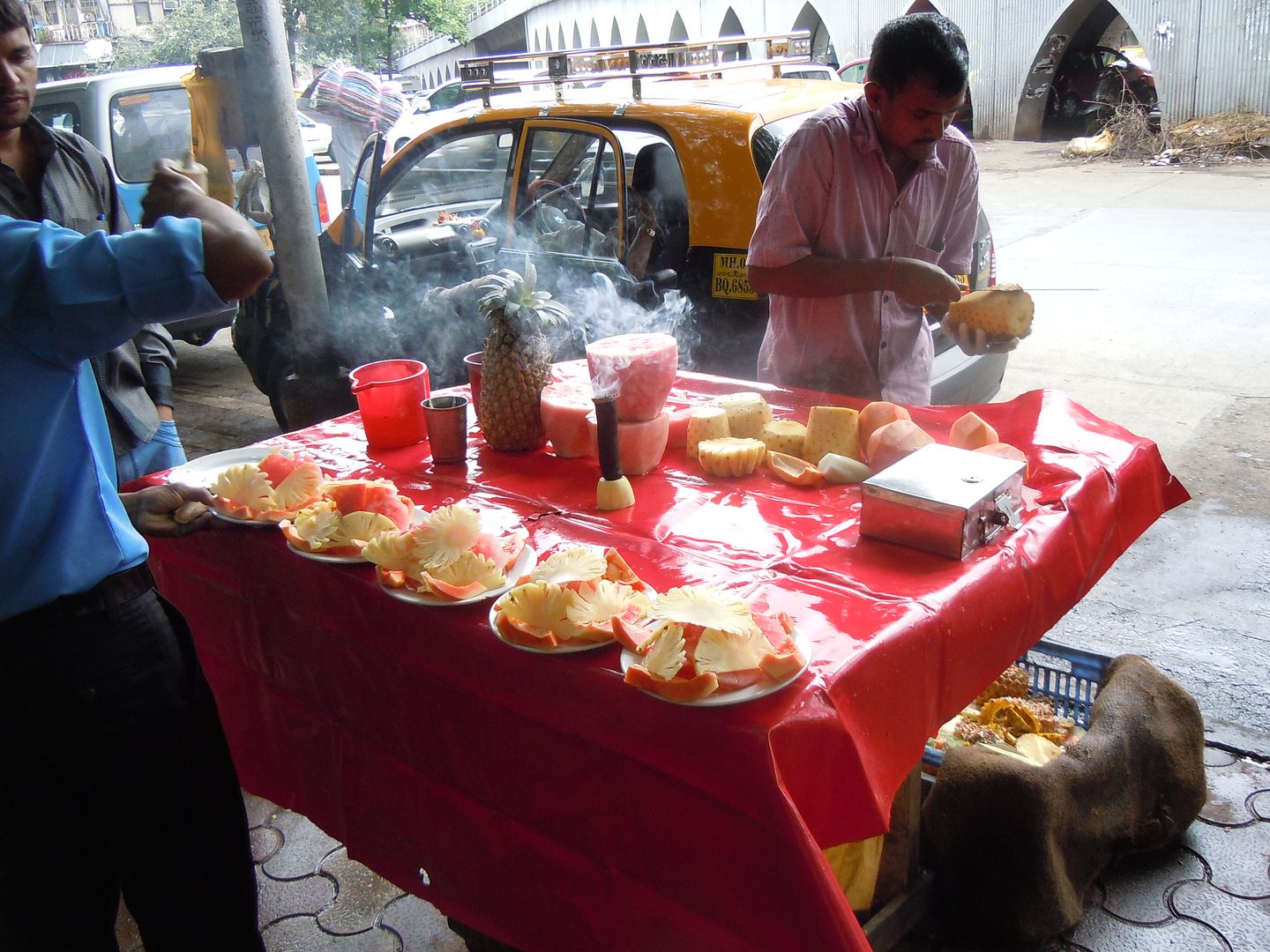
But he didn’t sanitize the trip. We saw the world’s largest hand laundry. We saw beggars and street kids. I never understood how so many of them could be missing limbs, and he explained that the limbs are taken off on purpose because that makes them more effective beggars. Their economic value increases the more disabled they become.
I was shocked at the slums, although at the same time I marveled at the telecommunications they featured. There was TV, there was electricity, mostly jury rigged.
Mumbai’s zoning laws are draconian, and property laws restrictive, you cannot just ‘build up’ despite massive growth. So the cost of a home is prohibitive. A worker with a good job — and there were relatively well-paid workers at my hotel living in slums immediately outside the hotels’ gates — could commute several hours each way each day, or live near work (they work very long hours). They could afford local lodging but it would take up most of their pay. The slums, which wouldn’t have to exist to the same extent with better, less bureaucratic laws, are the reaction of workers who want to save money and oftentimes send some home to their families outside the city.
I sat for hours in my room, in the darkness and in silence, after that first day seeing Mumbai. I was deeply affected by it. Lucky marvels at how happy with life people seem, and that’s a fantastic perspective. It sure helps make my own first world problems seem small.
There’s certainly much greater poverty in the world than in the UAE, and much tougher conditions than those experienced by guest workers there.
I’ve seen extreme poverty – without having spent extensive time in Africa, so in Cambodia, and in rural Thailand, for instance.
Thai villages can be in beautiful settings, but they don’t feature the sort of construction that UAE guest workers enjoy.
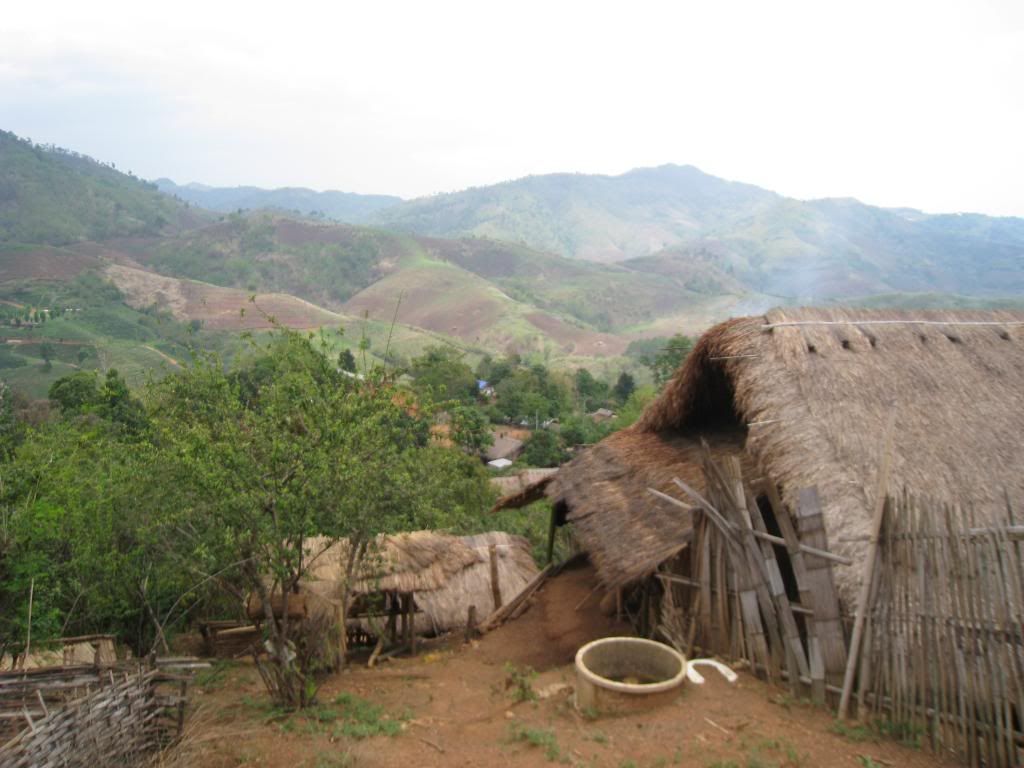
I remember being struck by a home built out of wooden boxes, leftover from US aid shipments.
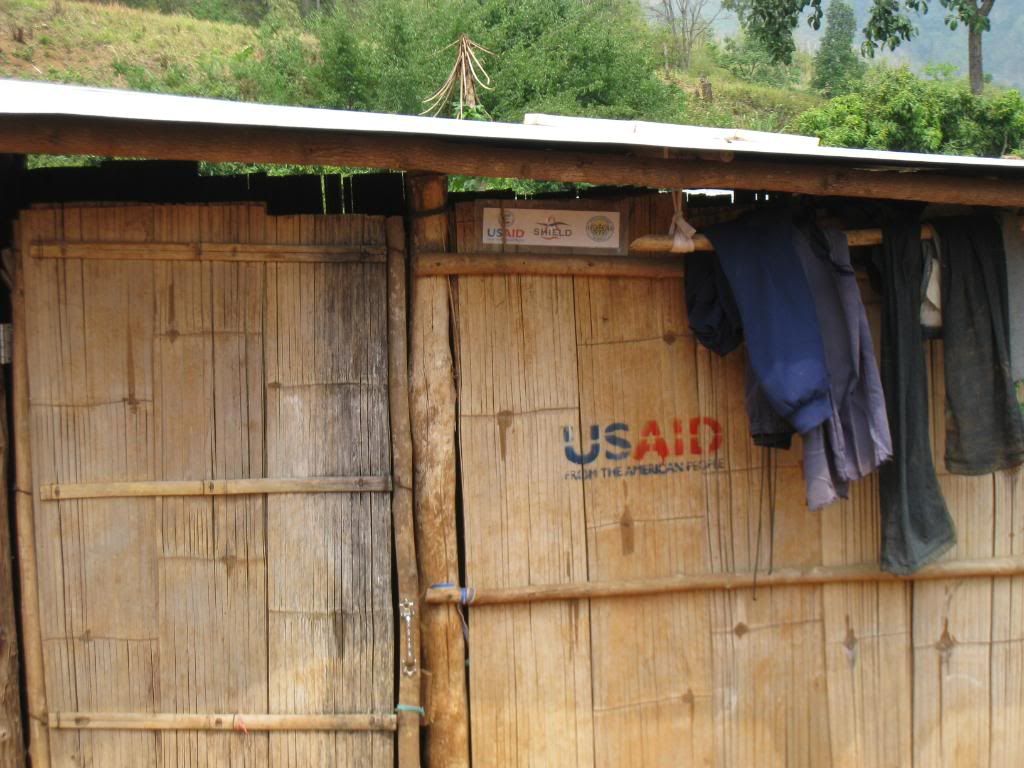
When I think of this, I find it hard to rate the UAE as one of the worst places in the world even as I can have sympathy for guest workers here.
There’s little doubt that:
- Working conditions are tough. Long hours, maybe 16 hour days, 7 days a week.
- There are no meaningful political rights for guest workers.
- Employers take away passports, this means someone is essentially trapped while they’re there.
- Islamic law can be imposed, from a Western perspective (that I share!) very unfairly. Think of stories of Western women working in hotels being drugged and then raped and then jailed for having sex outside of marriage.
I think we can separate out a couple of things though. Limited rights are a real problem. It is one strand of many that potentially makes the region a powder keg. That won’t appear in literature and surveys until it’s already become apparent, much along the lines of Timur Kuran’s work.
It’s a terrible practice that a company, investing in the travel and training costs bringing a guest worker over, gets to treat the individual as indentured by taking their passport.
But if you’re just talking about working conditions, 16 hour days 7 days a week without family. That’s a lonely existence for sure. But there is a reason that people do that. It’s to escape places like India and Pakistan.
Revealed preference is that, for many, those places are worse. And there’s opportunity to make money, save money, support your family, to be had in the UAE in a way that for many there isn’t in their home countries.
They miss their families, they cannot wait to go back. And we can sympathize with them. We can wish for political rights. Yet over and over this is chosen as a less bad option.
Since wishing won’t make it so, I think we have to do a comparative analysis. For the average male guest worker at a minimum, they think their life will be better working in these conditions than not.
And so while Lucky feels ‘great sadness’ for the plight of the workers (a good heart for sure), I find their very existence uplifting. They’ve gotten out of worse conditions. They can earn a much better living. They are driven, they are strivers, they are overcoming some of the worst conditions humanity faces by choosing this life.
We live in a world of second bests. Much of what we’ve come to appreciate is relatively low, and limited to a small portion of the world’s population. But it spreads. One can be poor in the United States while having a car, a color television, and there’s even a government program to assist with access to a mobile phone. It’s fantastic that we can be defining poverty up but it also can skew our perspective on the rest of world, often behind us and behind Western Europe in these advances.
- You can join the 40,000+ people who see these deals and analysis every day — sign up to receive posts by email (just one e-mail per day) or subscribe to the RSS feed. It’s free. You can also follow me on Twitter for the latest deals. Don’t miss out!


By the way Gary, what is wrong with your web page since that maintenance a few days ago? The header with the Boarding Area links and search option do not display.
@Carl, I flagged that for the tech folks and they’ll be working on that soon. I apologize for the inconvenience with this, obviously frustrating but hopefully back to 100% soon.
Best,
Gary
Someone is getting free status from Emirates I suppose. 🙂
@J I do not have any status with Emirates. I used to have Gold from Etihad via a status match offer but that has expired.
I agree with you for the most part. I was born in Mumbai and presently live in the UAE (via the UK, Australia, USA, Canada, Ghana and Somalia). I’ve seen and lived amid poverty and opulence, often at the same time.
You know what’s interesting though? Of all the places I’ve lived, the one that still depresses me the most is not Somalia nor India nor the UAE. It’s downtown Atlanta (pre-Olympics and immediately post-Olympics). The cycle of homelessness, drug addiction, gun crime, broken families and general lack of hope and ambition among a significant section of the African-American population was what really upset me.
Certainly, life was riskier in Somalia and less materially comfortable in Ghana, but in all those places the inconveniences and risks were perceived as temporary steps towards a brighter future. Inner city ghettos in the so-called first world really got to me and still get to me.
For every American who visits Mumbai or Dubai and feels pity for the lower income workers there, there is probably an Indian who visits the wrong side of the tracks in an American city and feels the same.
Ok, the reason why these people move from India / Pakistan to the UAE is because they get paid in Dirhams, and can send enough money home (favourable exchange rate) to support their large families. It is NOT because they want to “escape places like India & Pakistan”.
I’ll be honest – I read your blog, as well as Lucky’s, for travel information, not politics. Slowly but surely most folks are starting to forget what premise their blog was started on.
I agree with you Gary. It is a “revealed preference”. If the prefer to go to UAE, that means on net, they like it more. Of course they may miss this or that in their home countries, and of course their conditions can be improved. But the relative comparison is revealed by their choice to go to UAE.
@Sean M – great perspective
@Varun – my point exactly.
@JohnSD – I guess this is my impressions from travel, to places like UAE and India (which Lucky discussed in his post) and also certain places in Southeast Asia. Seems smack down the middle of content for a travel blog, reflections on interacting with people and the conditions they face. Although admittedly this post is not about how to travel there cheaply or in comfort.
What @Varun said. For most of the labourers, it’s about the money; UAE is most certainly not an “escape” for them.
@Julian – and in fairness there are certainly going to be people who regret their decision and have to rough out the remainder of their time. There can be a gap between ex ante expectations (on which decisions are based) and ex post beliefs about what is better.
I lived and worked in Dubai for two years and learned a lot of the workers conditions over there. First of all, they are not slaves. They can go to the police whenever they want and be deported back to their home country. The average Indian construction worker there makes $8/day compared to an average of $1/ day back in India. How much would you put up with to earn 8 times your salary?
@UAEExpat – that’s exactly what I mean. It’s a place to go where they have an opportunity to earn that they do not have back home.
I honestly don’t mean to constantly disagree with you, but I’m going to have to disagree on this one. I’ve spent time in some of the worst places in Africa, and yet many were happy. You are trying to correlate money and poverty with happiness. Workers in Dubai are there to give money to family back home, with the dream of hopefully returning themselves. Just because they make more money there does not mean they are happier- in fact many are not and try to leave but cannot (their employer takes their passport or doesn’t grant approval for them to leave the country). There is a good documentary on Netflix called ‘Happy’ that perfectly shows this.
But this was a good article nonetheless
@Tyler I’m not actually trying to equate money and happiness, there are plenty of things we do that we believe to be in our own self-interest, that do not make us happy in the short term. My point is that people are going there because they view doing so as making themselves better off — maybe they want to help their families (unhappy conditions, but happy in that they are fulfilling their higher order goals) or maybe they want to save money and start a business, buy a home, get their family out of the country someday. It’s hard, grueling work when they’re young on the bet that it positions them better in the future.
Thanks for your perspective!
What I see in both your and Lucky’s description of poverty in the world is a wonderful opportunity to be kind and generous in your interaction…..that is the space you control and it is how we move the needle……..
That’s how I feel about Bali. The 5 star resorts only do so much to mask the spirit crushing poverty I witnessed…and I’ve lived in Mexico and China.
A cognitive error I’ve seen folks make in my life is thinking that no matter how bad the situation, there’s always a good option out there if you look hard enough. Whereas in reality more often than not the choice is between a bad option and a less bad option.
@Gary Leff,
and you find that “uplifting”?
I can easily mention 40+ countries that are more uplifting in this aspect and that poor folks rather desire to move to. UAE is hardly their first choice. Let’s set bar low!
The process you described has been happening since the beginning of human time and has been well described in the literature (especially since the beginning of the industrial age). This is the first time I’ve seen it described as “uplifting”. I can hear Karl Marx turning in his grave and Charles Dickens shacking his skull.
With all due respect to @JohnSD, I find it quite refreshing to read an article that does not deal with the latest super-incredible-you-gotta-get-it-now credit card offer, but rather addresses meaningful issues like these. I love to travel. To me it is about seeing the geographic beauty of the world as well as to learn more about the culture and sociology of the area visited, warts and all.
Keep up the good work Gary.
(And on an equally unrelated to travel note, I’ve got to thank you for turning me on to Old Bisbee Roasters and Elephant Jumps!!)
@ABC If the UAE isn’t the first choice — FROM AMONG THOSE COUNTRIES THAT A PERSON CAN CHOOSE TO MOVE TO AND GO WORK — why do you think they’re choosing to go there? The point is that there may be countries ‘more uplifting’ that people don’t have access to. For instance, the US isn’t especially welcoming of temporary workers.
Gary, I think you are missing the point here. People leave their home country like India and Pakistan to earn money with a skewed exchange rate…mostly on a temporary basis. Rarely would a person think about relocating their family to the UAE to settle there. You would mostly see the earning member spending most of their life working in the UAE, only to return back to their home country to retire…by choice.
@XYZ no, that’s the point exactly… temporary, work massively hard, it’s rough, earn relatively large amount of money then leave. That’s a huge opportunity for them, it makes them better off.
I do not find it uplifting at all. Foreign workers move away from their families to do difficult work with few labor protections out of dire economic need. They suffer systematic abuses and are paid little by local standards, just enough to support their families in different economies. These are not consultants getting extra compensation for lots of travel away from home. It reminds me of prostitution.
@BrewerSEA you would deny them the opportunity and keep them in poverty at home, because it offends your sensibilities?
“Dire” is the eye of the beholder. I learned long ago to stop judging others based on my values. Who’s to say I’m right? How dare I condemn these workers who are trying to better themselves or provide for their families?
Too many of us US folks tend to judge the world’s behaviors based on what we believe they should be. That’s just wrong.
Gary, I think you’re right absent fraud. But what to make of stories of workers who were promised they could keep their passports, but instead had them confiscated on arrival? Or who were promised X wages, but got X/3 instead, but if they left they’d have no way to pay back their brokers, who would then do violence to their families?
What David B. said. It’s the trafficking practices that are problematic, with people being lied to and then stuck in virtual slavery to pay off ‘debts’ incurred getting themselves into that situation.
@David B – absent fraud (the relevant question, since forced slavery exists even in the U.S., is the degree/frequency) and also absent other issues that I raise in the post as well (e.g. treatment of women).
You overuse the passive voice.
Good post Gary. thanks for taking the time to write this.
A self fulfilling write-up based on flawed assumptions, Western perspective and a total lack of the ability to see the life in its totality. There is no substitute for a life time of experience with things, situations and events.
I think your post is naive. Many of these people were lured overseas on false pretenses and are now slaves. What happens in an imaginary world “absent fraud” doesn’t matter because nobody lives in a world “absent fraud.” Instead actual human beings are being efficiently isolated from their families and placed in a situation where it’s almost impossible to escape. No one who pays someone $8 a day for a 16 hour day can describe themselves as a human being. They are a slave owner, and we are perfectly well entitled to say so. The fact that someone else in another country is also committing a horrible crime does not excuse the slave owner. We can’t support this by pretending oh well, the victim can choose between cutting off an arm or being a slave. Surely we should be demanding that these nations conform to basic standards of human decency and prosecute both those that cut off arms and those that pay $8 a day. I realize we’re not supposed to say anything because “they have oil.” Well, the US is set to soon become the world’s biggest oil producer, and yet we somehow manage to do it without hiring workers at $8 a day, so why should Americans continue to tiptoe around the feelings of slavers?
I have been a long time reader of your blog and always enjoy your insight and commentary on most things, however, this is the first time I feel like you have posted something that is blatantly ignorant/poorly researched or thought out. As peachfront mentions the UAE actively advertises a better life/opportunity to many families and coerces workers into migrating for temp work. Once the workers get there, it does everything it can (or doesn’t do in this case) to turn them into modern day slaves. Not one of these workers is happier now than they were in their home countries, and given the choice they would go back immediately. I would encourage you to do some research yourself and see how abysmal and plain racist this place is for temp workers. If you do do the research, it would be interesting to hear what you think.
@M thanks for sharing your perspective. I realize you say the post is ‘blatantly ignorant’ but then I get to this in your comment which simply does not seem right: “Not one of these workers is happier now than they were in their home countries, and given the choice they would go back immediately.”
Hi Gary: You might find this article from the NYT a couple weeks ago insightful, and may change your perspective.
http://www.nytimes.com/2014/05/19/nyregion/workers-at-nyus-abu-dhabi-site-face-harsh-conditions.html
You wanted an example of Islamic law that only seems unfair from our “Western perspective” — and you chose drugging/raping/jailing women??
This isn’t a quaint local custom that can be explained away. This is horrific abuse. Shame on you for not seeing the difference.
I notice that you go on to consider the merits of your various bullet points: the limited rights are a problem, the passport thing is a terrible practice, the working conditions defensible. The women, however, vanish from the discourse. They seem to have been mentioned only for the shock value.
That home doesn’t look like it was made from leftover boxes, if you ask me. The “USAID” appears to have been painted on after the wall was assembled – it was probably built as part of a USAID project.
I assume you haven’t seen the piece by Jeremy Schaap regarding th building of the soccer venues for the World Cup being played in Qatar. That is not a land of opportunity.
After living in the UAE for 7 years, have to disagree with Gary’s comments.
To say that UAE is an uplifting place of opportunity is off-the-mark. To say that people come to the UAE because it is better than their home countries, is very naive.
Gary – you visit the UAE as a tourist – staying in first class venues (Premier Inn in UAE is also very different to the ones in the UK!). The people you meet in your travels are not all representative of the guest workers in the UAE.
There are too many stories – reported and not (remember that the media is controlled) – of horrible cases of poor treatment of workers. The (unfortunate) low paid people building the glamourous hotels you stay in, to the salespeople in the stores to office workers.
Do we live a good life in the UAE? Yes. But we are in the “white collar” expat community which is a minority. We are also about to move away because this is not the place where we want our kids to grow up.
The differences between the local indigenous population as the expats – for which their is a hierarchy (akin to a caste system), is stark. Visit a supermarket, and you will see a pecking order between the vegetable stall guys (typically Indian or South Asian), the cashiers (typically Filipina) and the bag packers (lower wage, lower pecking Indians/Nepalese).
Many of these workers do no have their passports, still live in horrible conditions and would leave for their home country if they could. To your reply to “M’s” comment – many would leave but simply cannot. They are brought over on false pretenses, have a contract they must finish, don’t have their passports to allow them to leave, and have debts to pay back to the people in their home country who promised them a better life in the UAE.